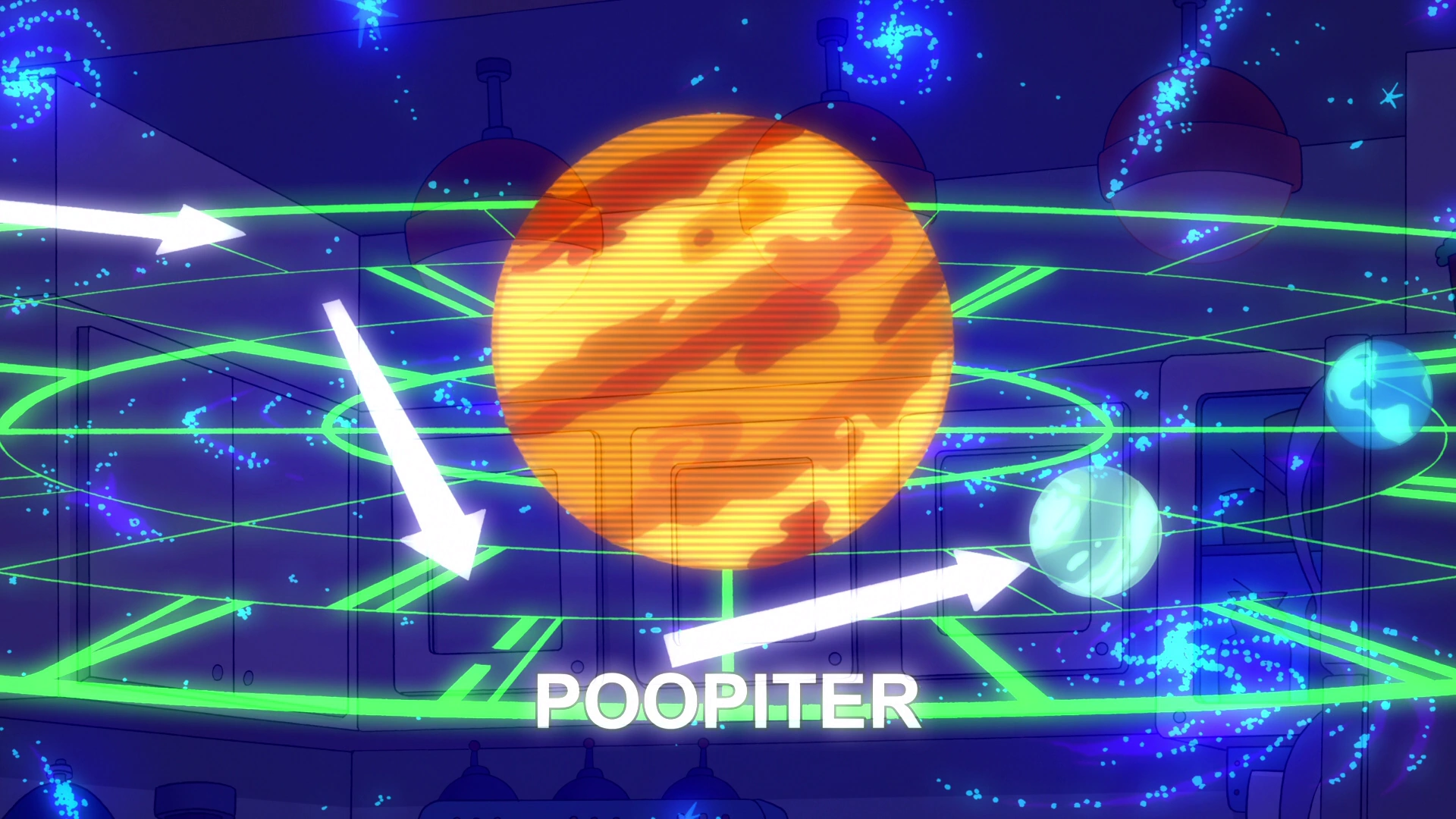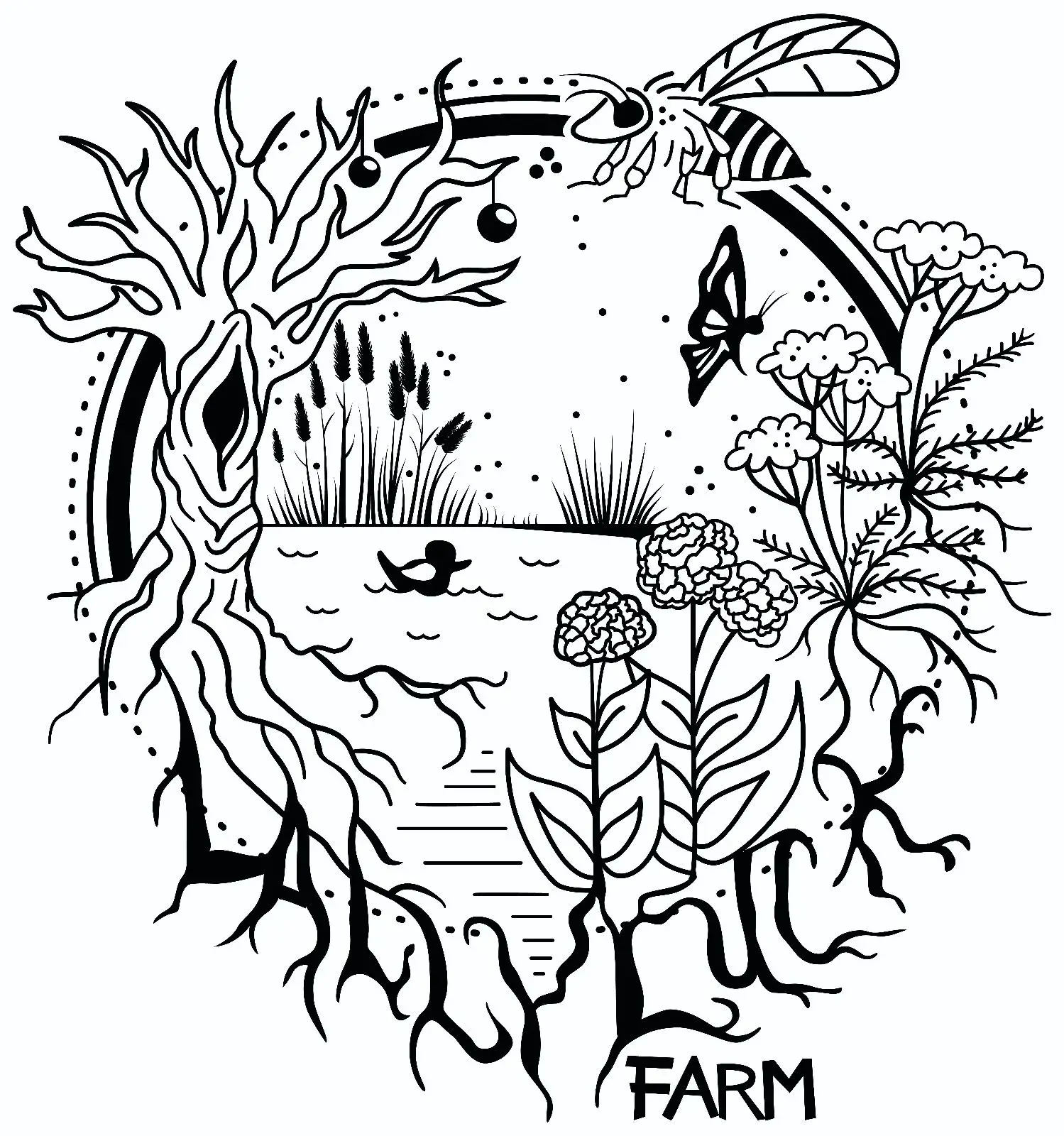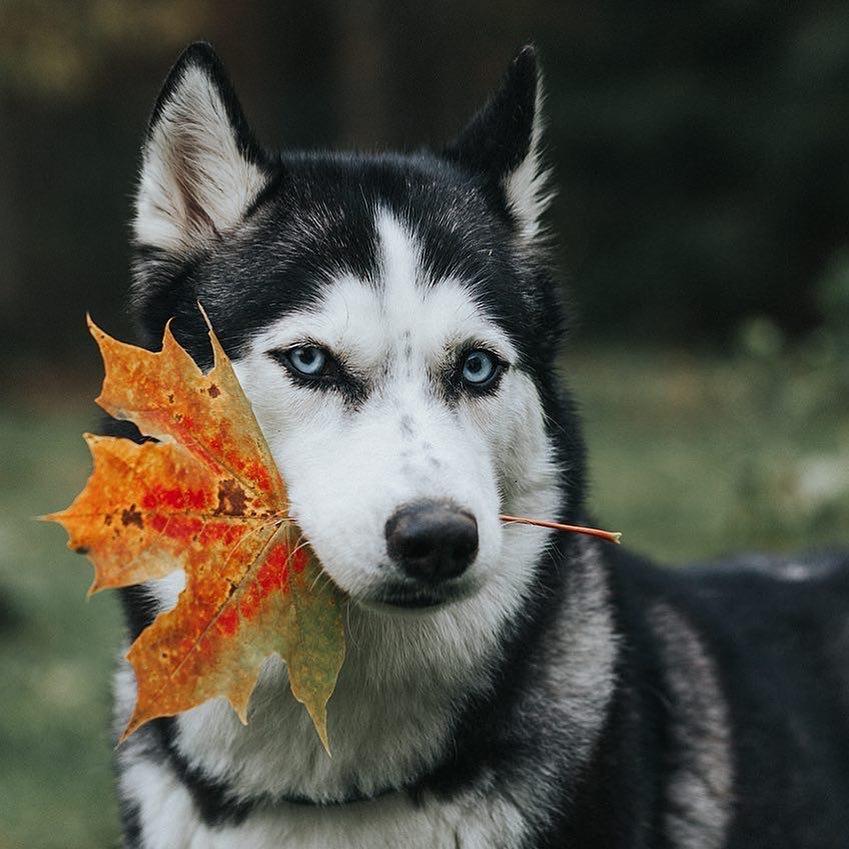which plants though? are you making shit up?
Wasn’t this more about taking away the names from a bunch of people who in hindsight were terrible people? I remember something awhile back about people getting upset because some groups had decided that if you had a shred of negativity in your past, you weren’t allowed to discover and name things. I believe they were trying to change a bunch of names “to not honor the original person”.
That didn’t feel like science so much as politics and I get why some would be against that.
That didn’t feel like science so much as politics and I get why some would be against that.
Respectfully, this is a weak sauce excuse, and a completely unscientific attitude. Scientists do not establish arbitrary barriers between different fields.
These kinds of statements 99% of the time come from people who don’t even do science, and whose understanding of science consists of “take down data points, analyse data points, be neutral” (paraphrasing your comment).
In reality, scientific names are usually given to honor specific people. The idea that the community just gives names to people who discovered things is simply ignorant of history. There are literally cases of people purchasing name recognition. There are also cases of people being honored by having their name on a phenomena they didn’t even discover, or a unit they did not create (typical for units, which are standardised by committees and not named after people in the standardisation committee)
Science is a highly political process.
The real actual science, just ask petroleum, cigarettes, sugar, mosanto glyphosate, lysenkoism, grant allocation, DDT, lead gasoline and paint, amiante, IQ, operation paperclip, nuclear testing, SSRIs, opioid crisis, covid 19, gain-of-functionr research, psychology replication crisis, trans fats, usda food pyramid, even cold fusion and the latest entry in this list PFOA/PFAS.
Scientific truths and regulatory actions often “become allowed” only when they are no longer economically threatening to the incumbents.
Some of the examples are not shown to work. They are however still good examples since going down a dead end can be a good example. Deciding where to explore is deeply political.
Edit: you could delineate them clearer to make sure nobody thinks of you as a conspiracy nutjob, but you do you.
For e.g. cold fusion there was to the best of my knowledge not a single clear cut case where it could be replicated without doubt or at all. Errors just add up.
Here is an excellent retelling of the cold fusion saga
https://www.youtube.com/watch?v=jn92eWhGG14 https://www.youtube.com/watch?v=EbfJFPVApu8 https://www.youtube.com/watch?v=KWlBZT7L1qM
Basically, as soon as the scientist had one anomalous reading, the political and academic machine got into overdrive, huge money started getting thrown around and the scientists got under huge amount of pressure and paranoia.
I think you’re confusing “politics injected into science” with science. Science is data and analyzing it. Pretending someone didn’t invent something is removing data points and I’m pretty sure science calls that fraud, just like we call the studies that found cigarettes healthy to be frauds, or the oil companies to be frauds. 2 wrongs don’t make a right.
“No True Scientist” would say cigarettes don’t cause cancer or co2 emission don’t cause global warming, or glyphosate isn’t bad for the environment. Yet, it did, for multiple decades.
You have to consider “actually existing science” with it’s political and financially directed function, choosing what questions get asked and who will answer them. You can say “oh that wasn’t science it was fraud” which is all well and good now but it wasn’t for those decades when they served to obscure or bury the truth rather than discover it.
Actually existing science is a really troubled institution and ultimately there is no such thing as science outside of politics, science is part of the political process and cannot escape or be independent of it.
Yes, and I’m here criticizing “actually existing science”. That’s exactly my point. It’s not “real science” when it’s injected with politics and emotions like that. It’s biased in a way science shouldn’t be.
Most science isn’t real science in that view, the problem is that most science is funded by ulterior motives, very little science is the basic, primary science of exploration. That creates both huges gaps where the political and financial establishment fails to imagine value (climate science) and also fake science where something should be true for the power that be, but isn’t (glysophate, cigarettes safety).
We should always imagine as a flawed, politically and financially motivated enterprise, a tool in the grip of institutions that need to survive first and science second. Pure science is a rare thing and it shouldn’t be assumed be the case whenever things are happening under the name of science.
This is the framework to avoid being surprised by scientific failures and to compensate for them.
You are confusing science (the process of discovering understanding of reality) with truth (how the world “really” is).
“Real science” like you describe can almost by definition not exist. Science is costly, both in time and in money. People don’t just spend lots of time and money just because. For that kind of investment you need some kind of motive, some reason. And as soon as you have that, you are into politics and emotions.
Biased, politicised science is real science. Not the platonic ideal you have in your head.
Have you ever been to a niche scientific community conference? It’s always been 90% politics.
The Magellanic Cloud community collectively decided that they didn’t want to study objects named after someone who had subjugated the ancestors of the communities studying it, so they agreed to call them the Milky Clouds. A pop science article went out about it and people complained that it wasn’t science, it was politics. But unless you’re a part of that community, you don’t get to decide on the names of the objects that these people understand better than literally anyone else alive or dead. They’re doing more science regarding these objects than anyone else has ever tried, they get to decide what’s best, even if it appears political.
“unless you’re a part of the community fuck you”
I can see why it got heated…
Well yes, generally that’s how jargon is developed. Typically people who don’t contribute to the knowledge base of a field don’t have any say in how that field uses language.
And that’s how you end up with Gulf of America
I see it as the exact opposite. If we let the professionals like cartographers and historians hold the reigns rather than people who don’t have anything to do with it, eg. some pedophile politicians, nothing would have been changed.
Wtf are you going on about? I’m talking about changing the name of a plant because it’s discoverer was a racist. Nothing about politicians or pedophiles. Ffs, some of you have brain rot as bad as the MAGA. I’m literally saying that history should remain accurate and not try to whitewash away the negatives.
Hey buddy this comment wasn’t a reply to you. Thanks for the insults tho really helps things out
And this is why nobody asks for fishos’s opinion on how to name things.
Remember, it’s only “revisionist history” if it’s the history you don’t like. Otherwise it’s “because totally valid reasons”.
From henceforth “trees” shall now be called “tall wavy bois” and “flowers” shall be known as “colorful stemmy bennies.”
I will not be taking questions.
But what will the tree community be about then?
!trees@lemmy.world mentioned
Weed. Like it’s always been.

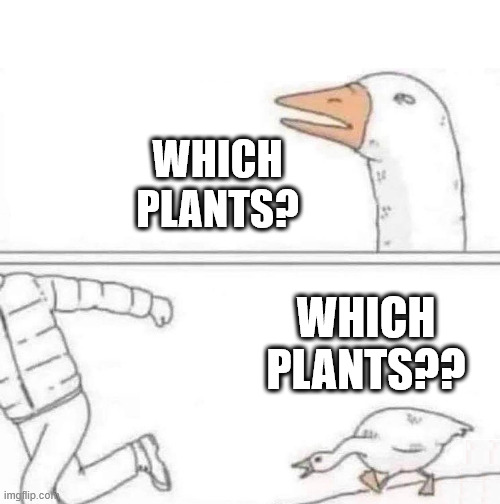
I’m Jewish and I’m upset whenever someone calls Jew Harp (an instrument) or Jew Ears (an edible mushroom) with another name.
come on, why can’t we be associated with yummy mushrooms or cool cowboy instruments?
if you call it Jaw harp i want to break your jaw,
at least the Latin name for jew ear still says jew ear
NPC wojak: “I love science.”
“Science says sex and gender are two different things.”
NPC wojak gets angry: “Science was corrupted by the Jewish cabal! See: John Money*!”
* John Money is not Jewish, but is pushed by transphobes with the hope you’ll accuse him being one.
forget about John Money
look into Magnus Hirschfeld, had the first gender clinic and did research and surveys on gender, he pioneer gender treatments and helped transsexual people (that’s was the name back then)
he was Jewish and was targeted by the Nazis exactly how you said.
The famous book burnings started out when they raided his institute and burned all his research.
what are the changes and why?
can’t post this and expect us to carry on
This sort of thing happens all the time, and it’s usually subject to some level of debate. Just look at the ponderosa pine (pinus ponderosa. Some say there is one species with multiple subspecies, some say they are just different varieties, some say that they are different species, or some are and some arent, etc.
Yeah! I’m barely able to get mad about this with no information!
meanwhile,
we still refuse to call Sonic th hedgehog protein anything else.
I mean, I’m ngl sometimes I do feel like I gotta go fast.
Sometimes I also want to curl up into a ball, too.
So no one can see me because I’m so small
“Pussy willow will now be called cotton stick.”
I’m Cotton Stick… Cotton Stick Galore.
Had it not been for Cotton Stick Joe…
Pluto is a planet!
Yes, a dwarf planet!
And Jupiter is a Gas Giant, but we still count it as one of the planets of our solar system
Because if dwarf planets counted, we’d have to include a hell of a lot more than 9 planets.
NASA says there are only 5 dwarf planets in the system. But, it’s all pretty arbitrary. The line between planet, dwarf planet and asteroid are all pretty fuzzy.
An alien civilization looking at the Sol system might say that it’s only got one planet, Jupiter. Everything else is so much smaller that they’re not really significant.
Another logical cut-off would be that planets had to be bigger than any moons in the system. If we went by that standard, Jupiter, Saturn, Uranus, Neptune, Earth, Venus and Mars could all still count as planets, but Mercury would get ditched because it’s smaller than Ganymede and Titan.
What’s funny is that we’re still using the name “planet” which comes from “asteres planētai”, meaning “wandering star”. For the Greeks what mattered wasn’t the size or the mass, it was how bright they were. That meant that a tiny object near the sun like Mercury (Hermes) got the name planet, because despite being tiny, the fact it’s close to the sun means it reflects a lot of light. And Jupiter (Zeus) and Saturn (Cronus) got named not because they’re so big, but because they’re big and far away from the sun, which means they reflect sunlight in a similar way to the much smaller inner planets. Earth’s moon might have been given the name “planet” if it had been a lot smaller and/or further away.
Any time you cut off a spectrum you get weirdness around the edges.
then accept the spectrum.
just list the top 15 or 20 largest planets in the solar system when making a poster or a textbook.
And we should.
The most performative “hurr durr science” bullshit ever. Who fucking cares if Pluto was considered a planet when you were a kid?
Not you specifically. There are people who really seem to care about this shit.
The only reason Pluto is no longer a planet is because we discovered there were loads more planets and couldn’t be bothered to acknowledge their existence!
It’s been like that for decades to be honest. Ceres used to be called a planet, but you don’t see anyone complaining about it’s demotion
i’ve spent 25 years on this blue marble fascinated by space, and only recently discovered there multiple long orbit dwarf planets going around the sun??? that is so cool why is this not widely known!
Well, it is widely know.
Unpopular opinion: dwarf planets are cool.
but so what?
we used to have a handful of elements, but when we kept discovering more, we didn’t change the rules to have elements, and “strange elements” so schools only have to teach about 16 elements.
It’s all just made up categorization. It’s like that because astronomers have agreed to categorize them like that. That’s all.
Well elements are elements. All of them are just protons and neutrons and electrons at the end of the day. They have different properties but all of them behave by the same rules.
But there’s some big differences between the various kinds of bodies orbiting the Sun and how they’re orbiting the Sun. Big asteroids were considered planets, until we discovered there’s a shitload of them and they’re all in roughly the same area. When it turned out Pluto is basically in the same situation and there’s a lot more of the transneptunian objects, it was pretty clear that Pluto isn’t special. If you compare it to planets it’s pretty weird. But I think it’s good that they created the dwarf planet classification because that also elevated Ceres back, hell yeah.
I’d rather we have dozens of planets, with news articles talking about “new planets discovered”
we can still teach the handful of “classical planets”, so we can have posters, or have like periodic tables, and everyone be aware that they might go out of date as more is discoverd.
the solar system will be more exciting and more varied.
also, the “clearing orbit from similar objects” is time and orbit dependent,
larger orbits take longer to clear, which mean in a few billion years ceres might eject pluto and become a planet?
or we could have gas giants beyond pluto (like this hypothetical 9th planet ) which it would be unlikely it has cleared its orbit, so we could have a planet larger than Jupiter which we would call a planet, but if we discover another planet in its orbit (too large to clear), then we will have to say that it is a dwarf planet.
The main issue here is that everything from a speck of dust to the massive black hole at the centre of the galaxis is pretty much the same thing on a large spectrum.
You can clearly say that some grains of dust are something entirely different than a supermassive black hole, but it’s really hard to find solid cut-off points to categorize anything in between.
So we started with a handful of arbitrary examples for each category, which was easy when we only had these examples, but with more and more discoveries the gaps between these examples are filled and it becomes a spectrum, and then it becomes iffy what exactly fits into which category.
I get all that, and maybe a size threshold would have been useful.
but the rule of “cleared its own orbit” is not only arbitrary, but time and orbit dependent.
you there could be another planet far away, which is likely a gas giant, and if discovered it would be obviously considered a planet. however we will never know for sure because we will never know if there’s another object in it’s orbit, and if we then discover another gas giant in its orbit (it would be so large it’s unlikely to have cleared its orbit), then we would have to demote two gas giants (or more) into a dwarf planet status.
which is so plainly ridiculous. just make a reasonable threshold between asteroid and planet based on mass. or even geology, if it’s just loosely bound rubble, its an astoroid, if it’s large enough to have geology of some sort, then a planet (although that would be harder to determine).
but just based on an extrinsic factor?
if eventually Ceres yeets pluto out, would Ceres become a legit planet?
why is a planetary object multiple AU away from the object you are studying determined wether something is a planet or a dwarf planet?
that’s like defining that hydrogen is no longer hydrogen if it is bound with another element.
I totally get your point.
I think the rule of “cleared its own orbit” tried to be less arbitrary and failed horribly.
A size threshold is clearly more consistent, but it’s purely arbitrary, while the “cleared its own orbit” rule at least has the appearence of not being totally arbitrary, even though it introduces just the problem you are describing.
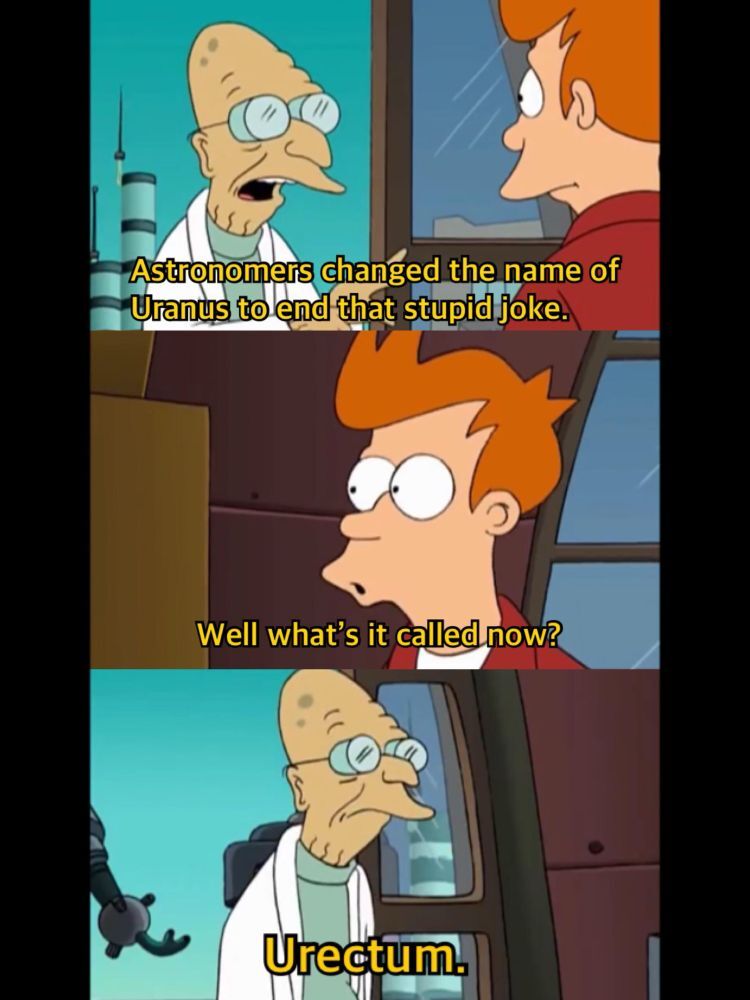

Pluto’s not a planet, but he doesn’t care because he knows he’s hot shit.
Pluto is a
planetplant!Pluto is a dog!
Cue in the guys about to get hanged meme. Paleontologist asking the Botanist, “First time?”
Potatoes are now called potatoes
What kind of toes?
If you have to ask, you can’t afford em
tomatoes and potatoes are now called tomatos and potatos

Coleus amboinicus -> Plectranthus amboinicus and I’m back to having no coleus, I’ll never forgive
Looked it up because I hadn’t heard of it. Wikipedia say the following:
Common names in English include Indian borage, country borage, French thyme, Indian mint, Mexican mint, Cuban oregano, broad leaf thyme, soup mint, Spanish thyme.
What? So does it taste like a mix of borage, thyme, mint and oregano?? Sure, they are all Lamiaceae (except for borage), but they have wildly different aromas!
There are something like twelve common names in english, it was introduced to me as “oregano brujo” (wizard’s oregano). It’s most strongly oregano in its aerosol phenols but when I’ve used it in meals (usually in a slow cooker) it’s got notes of the thymol that come through.
You hear what they did to Pluto?
I’ll be damned if you expect me to start calling it a Brazil nut
Brazil Deez nutz










